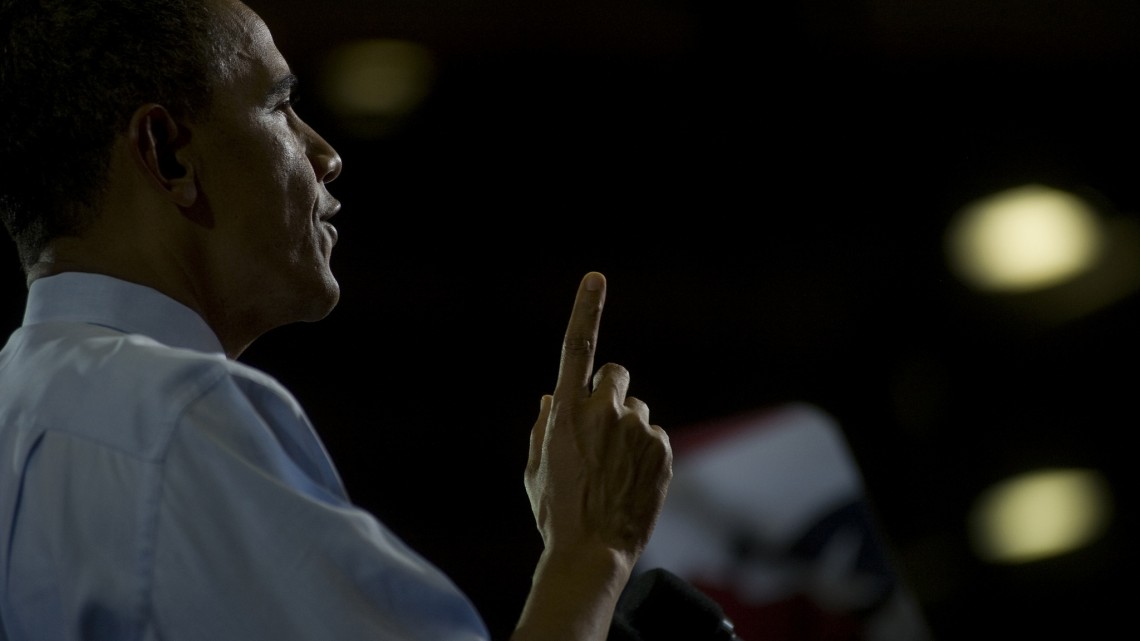The People Obama Tried To Blame For His Own Mistakes In Iraq Just Fired Back At Him With A Vengence
Confronted with the mounting violence in Iraq and Syria by the terrorist group known as the Islamic State...
Confronted with the mounting violence in Iraq and Syria by the terrorist group known as the Islamic State, also referred to as ISIS or ISIL, Barack Obama addressed the situation this weekend by blaming faulty intelligence for his administration’s inaction.
“There is no doubt that their advance, their movement over the last several months has been more rapid than the intelligence estimates and I think the expectations of policy makers both in and outside of Iraq,” he said. “And part of that is, I think, not a full appreciation of the degree to which the Iraqi Security Forces when they are far away from Baghdad did not have the incentive or the capacity to hold ground against an aggressive adversary.”
Advertisement
It took only a matter of days for officials within the intelligence community to respond to Obama’s characterization, insisting that his administration received a full report detailing the threat ISIS posed in the region.
“The job of the intelligence community is to warn,” one official reported. “We did that. In short, this was not U.S. intelligence failure. It was an Iraqi military failure.”
The Hill quoted that official further, including a pointed response to other administration sources who have accused U.S. intelligence of underestimating the terrorist group’s capabilities.
“Throughout the past year,” the source explained, “the intelligence community has repeatedly warned that ISIL was on the march, gaining strength and picking up growing Sunni support, while the Iraqi Security Forces looked vulnerable.”
The intelligence official went on to note that sources familiar with the situation in Iraq “reported on how ISIL has exploited Sunni political discord, uneven Iraqi counter-terrorism pressure, and the Syrian conflict to strengthen its operational capacity and intensify the threat to the Iraqi government.”
Jeffrey Anchukatis, spokesperson for the Office of the National Intelligence Director, conceded that a group’s “will to fight” can be difficult to accurately evaluate.
“Analysts must make assessments based on perception of command and control, leadership abilities, quality of experience and discipline under fire,” he explained, “none of which can be understood with certainty until he first shots are fired.”
It was not the ability of ISIS forces that came as a surprise to these analysts, one official explained, but the rapid rate at which U.S.-trained Iraqi forces devolved in the face of the militant threat.
Obama’s statement came one day after he authorized an air strike in Iraq and about three years after he declared that the ongoing war in that country was over. In an apparent effort to shift the blame to a different source, his latest narrative seems to blame his predecessor for a troop withdrawal that was completed years after George W. Bush left office.
Advertisement
“What I just find interesting is the degree to which this issue keeps on coming up, as if this was my decision,” Obama said. “Under the previous administration, we had turned over the country to a sovereign, democratically elected Iraqi government.”
Read more at http://www.westernjournalism.com/authorities-refute-obamas-claim-wasnt-warned-isis-threat/#tuw2zy9045WXpHUB.99

No comments:
Post a Comment
Note: Only a member of this blog may post a comment.